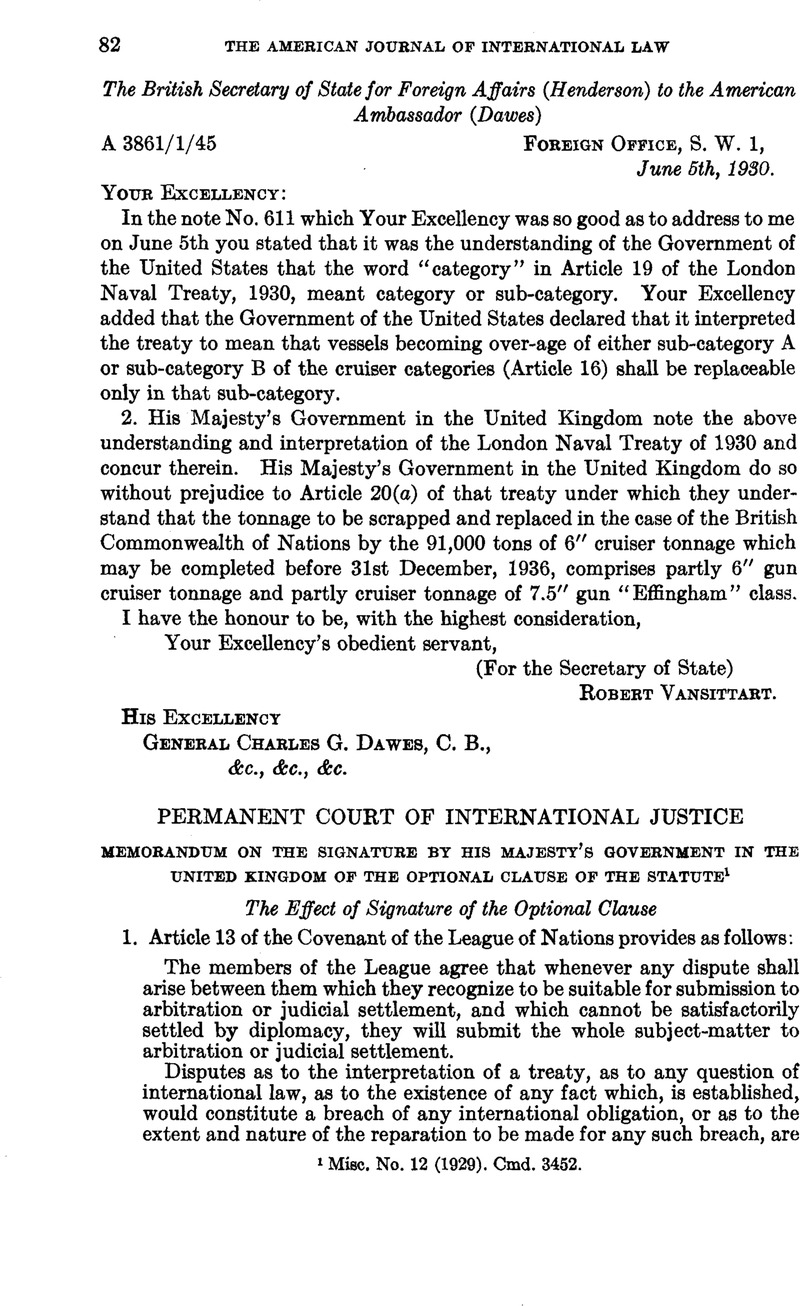No CrossRef data available.
Published online by Cambridge University Press: 12 April 2017

Misc. No. 12 (1929). Cmd. 3452.
* It is still possible, in narrowly restricted circumstances, for a state to go to war in violation of the Pact without necessarily violating the Covenant, and in such a case Article 16 would theoretically not apply. These circumstances seem, however, most unlikely to arise in practice, and the possibility of their doing so will be eliminated if the Covenant is amended as proposed by the British Delegation at the 1929 Assembly.
2 On Dec. 30,1929, Hon. Stimson Henry L. Secretary of State of the United States, made public the following statement:
Some days ago the press reported the publication of a British White paper, without givingthe full contents of the paper, and considerable comment and discussion was excited here bythe supposed assertion therein that in any future war there could be no neutrals. It wasapparently assumed here that this assertion had been made by the British Government as ageneral fact without any limitations, and that the British Government contended that thissituation followed as a result of the execution of the Kellogg-Briand Pact.
I have now received a copy of the British White paper in question and have read it carefully, and I find that these assumptions as to the position of the British Government are quiteunfounded. The argument made by the British Government was based upon the relationsof that government to its fellow-members in the League of Nations; and upon the obligationsassumed by members in that Covenant; and its argument was that “ as between members of the League there can be no neutral rights because there can be no neutrals.”
Their argument thus does not apply to the position of the United States as a signatory of the Kellogg-Briand Pact. As has been pointed out many times, the Pact contains no covenant similar to that in the Covenant of the League of Nations providing for joint forceful action by the various signatories against an aggressor. Its efficacy depends, as has been pointed out many times, solely upon the public opinion of the world and upon the conscience of those nations who sign it. There is nothing said in the British White paper contrary to this fundamental distinction. The entire argument of that paper clearly shows that it was addressed solely to the obligations created by the League of Nations.